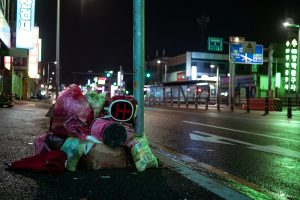Seoul will soon face a heaping dilemma – where to send the piles of trash that the city’s 10 million residents generate every day.
The megacity produces more than 9,400 tons of household waste daily. Even though the vast majority of that is compostable food waste, recyclables, or destroyed in incinerators, 9 percent of the total (about 846 tons) gets buried. Unfortunately, though, Seoul is running out of options for disposing of such waste.
The Sudokwon landfill in Incheon has dealt with garbage from Seoul and Gyeonggi Province since 1992. But now it is filling up, and the landfill recently announced that it will stop taking trash from the capital city in 2025. This has left city officials scrambling to find alternatives, or to continue negotiating with Incheon to keep using its facilities.
One potential solution is to lean in more to incineration. Seoul is already home to four incinerator plants, which process about 23 percent of the city’s daily household waste. Officials have already started scoping out sites for new plants as a way to head off the trash backlog that may arise after Sudokwon closes.
These officials are already expecting backlash from residents, however, after dealing with strong pushback from local residents who opposed the construction of the four current facilities in their neighborhoods. In fact, government agencies on both the country and city level have offered 250 billion won ($225 million) in subsidies to incentivize local areas to host a disposal site to take over once Sudokwon closes. So far, there are no takers.
While a trash problem causes headaches in Seoul, at the same time South Korea is also struggling with how to manage recyclable materials.
In 2017, after the Chinese government announced it would no longer import certain types of waste for processing, South Korea was forced to re-evaluate its consumption of plastics and other recyclable materials that were being sent to China. At the time, the South Korean government created new policies and more strongly enforced existing ones aimed at reducing the use of single-use items like plastic takeout containers and bags.
But then COVID-19 hit. With cafes and restaurants facing dine-in restrictions and more people staying at home to stem the spread of the virus, take-out and delivery orders surged, and with them so did use of plastics. In fact, the amount of plastic waste collected daily in South Korea jumped 14.6 percent from 2019 to 2020.
This surge has left businesses that collect and handle these recyclables stuck in the middle – with China closing its doors there were already fewer places to send plastics for processing, and now the demand is higher than ever. The government is trying to help, in part by buying up some of the excess waste generated during COVID-19, but the structural issues remain.
It seems the South Korean public has an appetite for more environmentally friendly products, and many major companies are jumping on the “green” trend by offering more eco-friendly packaging, discounts for using refillable containers, and more. But these moves likely won’t be enough to resolve these larger issues of who stores and processes waste – especially during a global pandemic.

































